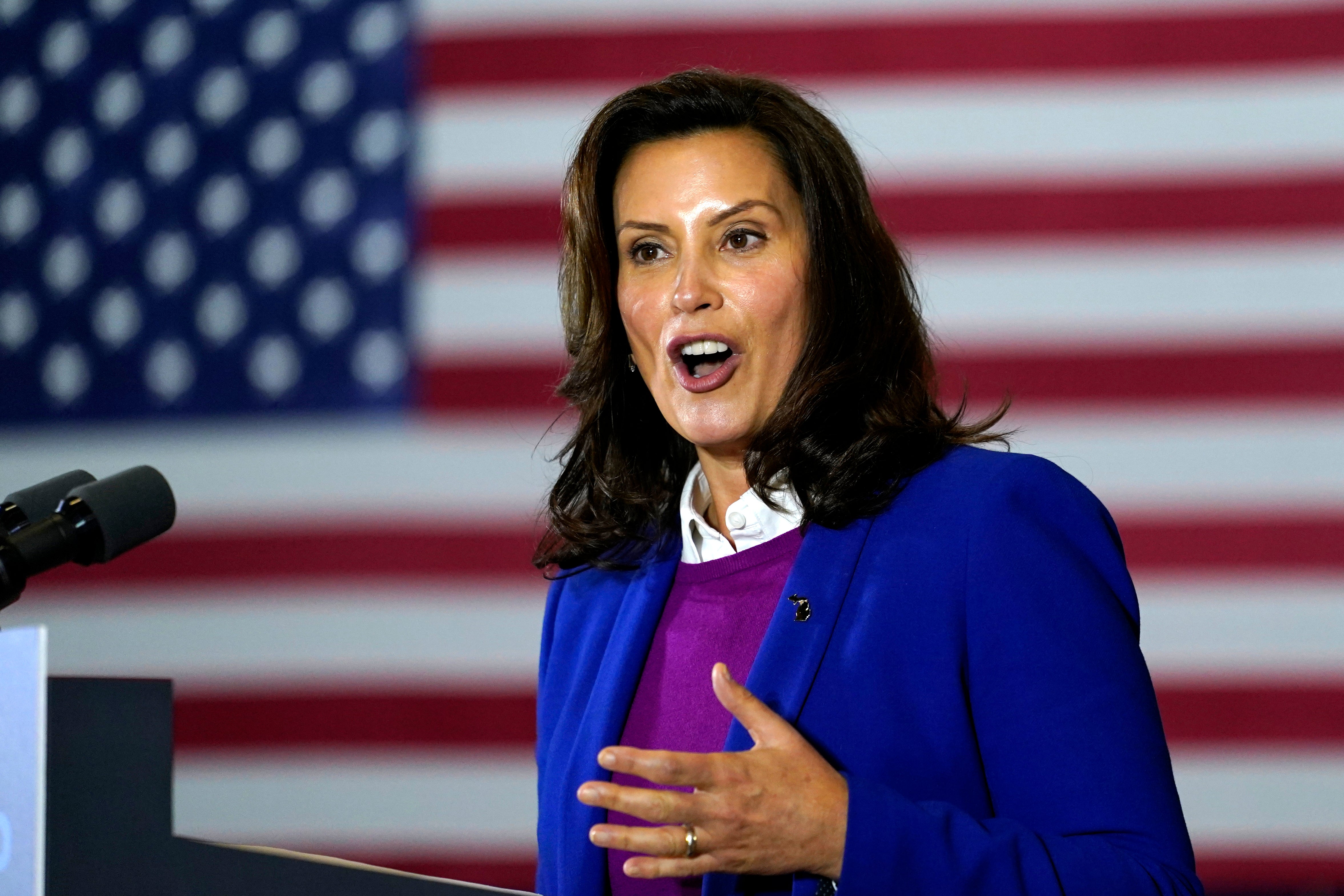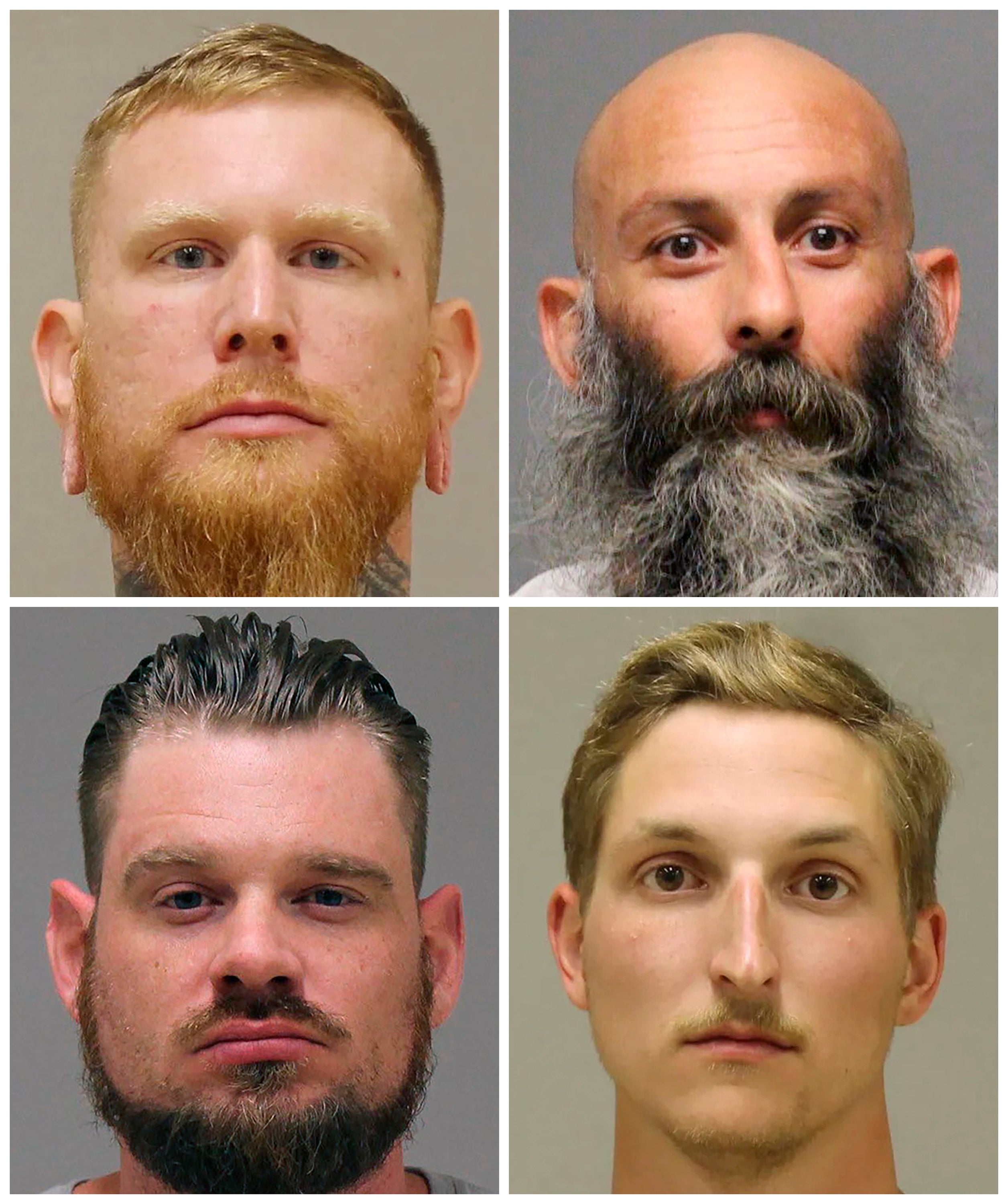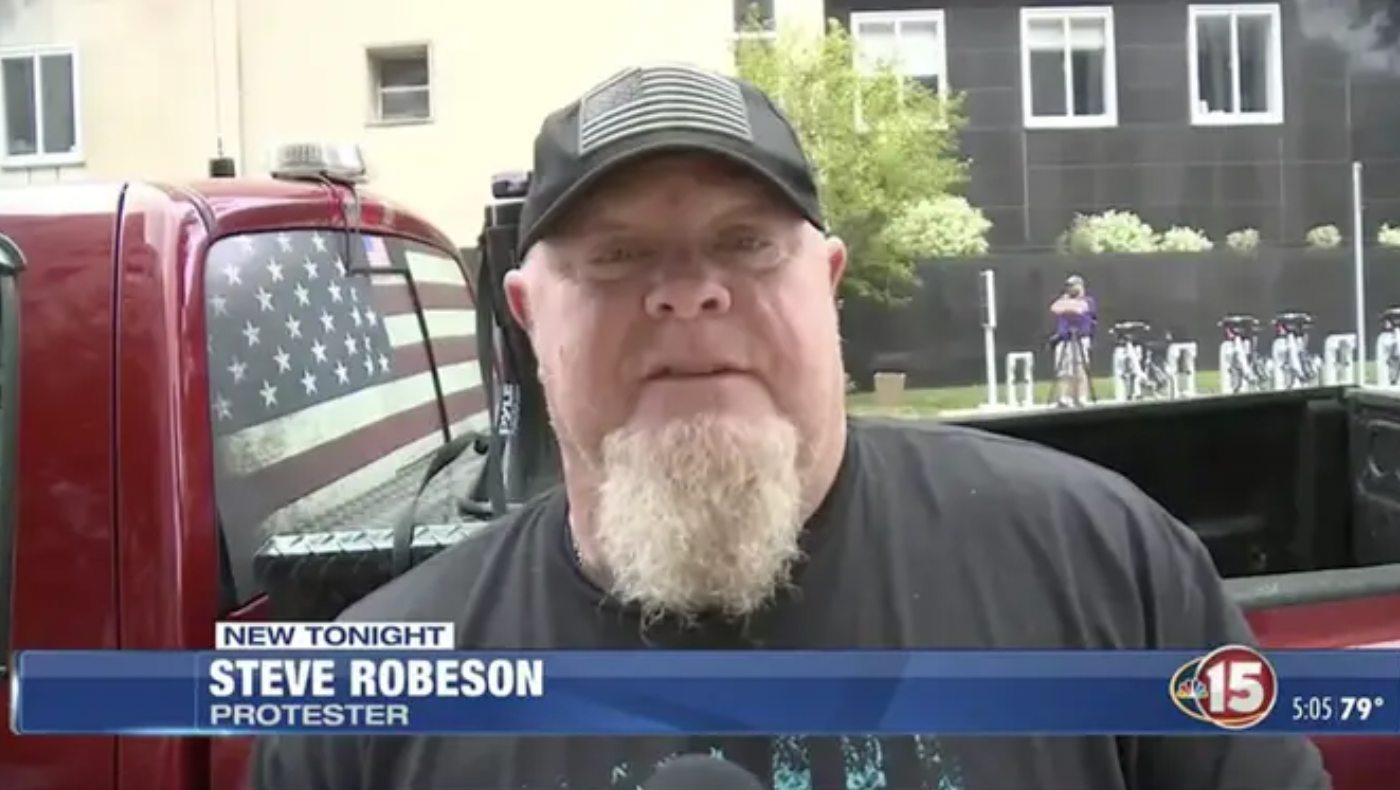Why FBI agents and informants could complicate trial of ‘Wolverine Watchmen’ accused in kidnap plot of Gretchen Whitmer
Amid questions of credibility, allegations of misconduct, and concerns of political bias, none of the FBI’s top three agents will testify on behalf of government’s prosecution, Justin Vallejo writes

Look closely enough at the FBI’s case in the alleged kidnapping plot of a US governor, and it could fall apart under the weight of its agents and their covert informants.
To see how the trial against four "Wolverine Watchmen" members might end, begin in 1987 with a 56-year-old school bus driver living in a small farming community of rural Nebraska, population 800.
The veteran of the Korean and Vietnam wars ordered a magazine in the mail, "Boys Who Love Boys", and found it "distasteful". That day his home was raided by federal agents and he was arrested and charged with possessing child porn.
It was the culmination of a three-year, covert sting operation. His name was Keith Jacobson and his landmark Supreme Court ruling, Jacobson v United States, is the legal precedent for an entrapment defence being argued in the trial of several men accused of plotting to kidnap Michigan Gov Gretchen Whitmer. The trial began this week.
In a court filing seeking to dismiss the case last December, defence attorneys argued that Adam Fox, Barry Croft Jr, Daniel Harris and Brandon Caserta were coerced into the alleged conspiracy by a textbook case of entrapment and "egregious overreach" of the FBI and their confidential informants.

That textbook, across most laws schools in the country, cites Jacobson v United States as a foundational case against government entrapment.
While Judge Robert A Jonker dismissed the motion in January, trial lawyers are expected to continue that defence in an attempt to convince a jury of government overreach based on the precedent set by federal agents in targeting Jacobson.
It will hinge on the extent to which the formulation and execution of the alleged plot was led by three FBI handlers, Richard Trask, Jayson Chambers and Henrik Impola, two undercover agents known as "Red" and "Mark", and 11 informants, three named as "Big Dan", "Jenny", and "Steve Robeson".
Judge Wilson said the defendants didn’t carry their "burden of proof" of entrapment to dismiss the case before trial, but a jury will ultimately decide the case.
The burden will depend on whether the federal agents’ in the lead-up to the presidential election of 2020 behaved as egregiously as federal agents did in the lead up to the arrest of Mr Jacobson in 1987.
In that case, Jacobson’s name was taken from the 1984 mailing list of a California porn distributor. He ordered two "Bare Boys" magazines that contained sexually explicit images that, while legal at the time, were outlawed by the Child Protection Act passed by Congress later that year.
Over the next two and a half years, two government agencies sent Jacobson mailings from five fake organisations and one bogus pen pal who was, in reality, a federal agent.
The letters railed against government censorship, promoted sexual liberation, and espoused freedom of choice. In the eventual raid on his farmhouse, agents found only those materials that they themselves had created and sent.
After five years of appeals, a 5-4 Supreme Court ruling in 1992 found that the United States incited his violation of the Child Protection Act.
"I knew I wasn’t a child pornographer, but when the government charges you with something like that, what are people going to think?" Jacobson, who was a closeted homosexual in an extremely conservative town, told The New York Times after the verdict.
The US government fought the case to the bitter end, with its argument before the Supreme Court suggesting that Jacobson had no constitutional "right to be free from investigation" on the ground that federal agents might not have had any "reasonable suspicion" of criminal activity at the outset of their investigation.
"Hence, he can prevail only if he can show that the government’s conduct in sending him a few letters, surveys, and catalogues was so outrageous as to offend the notion of due process," the government submitted.
"Those actions were far less pressing inducements than those that typically occur between two persons in face-to-face meetings."
The argument characterising the three years of Operation Looking Glass as "a few letters" was signed by then-Solicitor General Kenneth Starr and Assistant Attorney General Robert Muller. Which brings it back to the FBI.
Muller, after the Jacobson case but before investigating Donald Trump, went on to become head of the FBI for over a decade, from 2001 to 2013.
As co-author of the formulation that there are no constitutional rights to be free of investigation without reasonable cause, Muller sat at the top of the FBI’s institutional mindset as recently as seven years before Special Agents Trask, Chambers and Impola set out to infiltrate the Wolverine Watchmen and their alleged ambitions to kidnap Whitmer.

Trask, the lead agent and public face of the Whitmer investigation, worked at the FBI since 2011, spending his formative years under Muller. He was fired in 2021 while awaiting trial on allegations he choked and smashed his wife’s head into a nightstand after a dispute over a swingers’ party.
Chambers, who worked for three years under Muller since 2010, is facing a conflict of interest allegation after his private cyber intelligence side-hustle was linked to a right-wing troll account revealed by BuzzFeed News to have teased the FBI’s investigation months before it was public.
He was the primary handler for one of the confidential informants who played a central role in the case against the Wolverine Watchmen. Defence attorneys argue he had a financial incentive to leverage his successful FBI cases to grow his private business.
Impola, the second handler who also began his career in Muller’s FBI, was accused by defence attorneys of perjury in another case.
Amid these questions of credibility, allegations of misconduct, and concerns of political bias, none of the FBI’s top three agents on the case will be called to testify on behalf of the government’s prosecution.
That is even before any scrutiny is placed on the conduct of their confidential informants, and whether it passes the "egregious overreach" bar set in the case against a Nebraska school bus driver.
By Muller’s own perspective, the federal agents’ actions in the Jacobson case were “far less pressing” than typical inducements between people in face-to-face meetings.
For this, the defence will rely on more than 1,000 hours of secretly recorded conversations they say will show the FBI and their informants came up with the kidnapping plot and incited the defendants to take part in it.
The prosecution’s star witness "Big Dan", or a “Confidential Human Source”, was paid about $54,000 during the six-month investigation.
Stephen Robeson, the only informant currently named, pleaded guilty last October to federal charges of possessing a sniper rifle.
Prosecutors sought to distance themselves Robeson in January by seeking to bar recorded statements by him from entering the trial. They called him a "double agent" who worked against the government.

It was Robeson, defence attorneys said in court papers, who first raised the kidnapping plot during a July 2020 meeting where four out of 15 so-called militia members were actually government informants. Prosecutors allege it was Fox and Croft who first proposed the idea.
Whoever came up with the idea, agent Impola previously testified that the reaction was "negative".
"People were surprised, and they didn’t take to it kindly. There was a lot of questions being asked," he said, as quoted in the defence’s court filing.
Despite the "negative" reaction, "Big Dan" and other informants "pulled the puppet strings". At meetings of the group, the FBI agents and their confidential human sources would make rousing speeches railing against Antifa and Covid mandates.
"And this right here, is why the f*ck I’m telling you, it’s being allowed by DeWine here, f*cking shit face Whitface or whatever her name is there," one example begins.
"That shit has to fucking happen. Because if not, this shit right here, is going to continue to kill us in our back fucking yards."
Opening statements began on Wednesday.




Bookmark popover
Removed from bookmarks